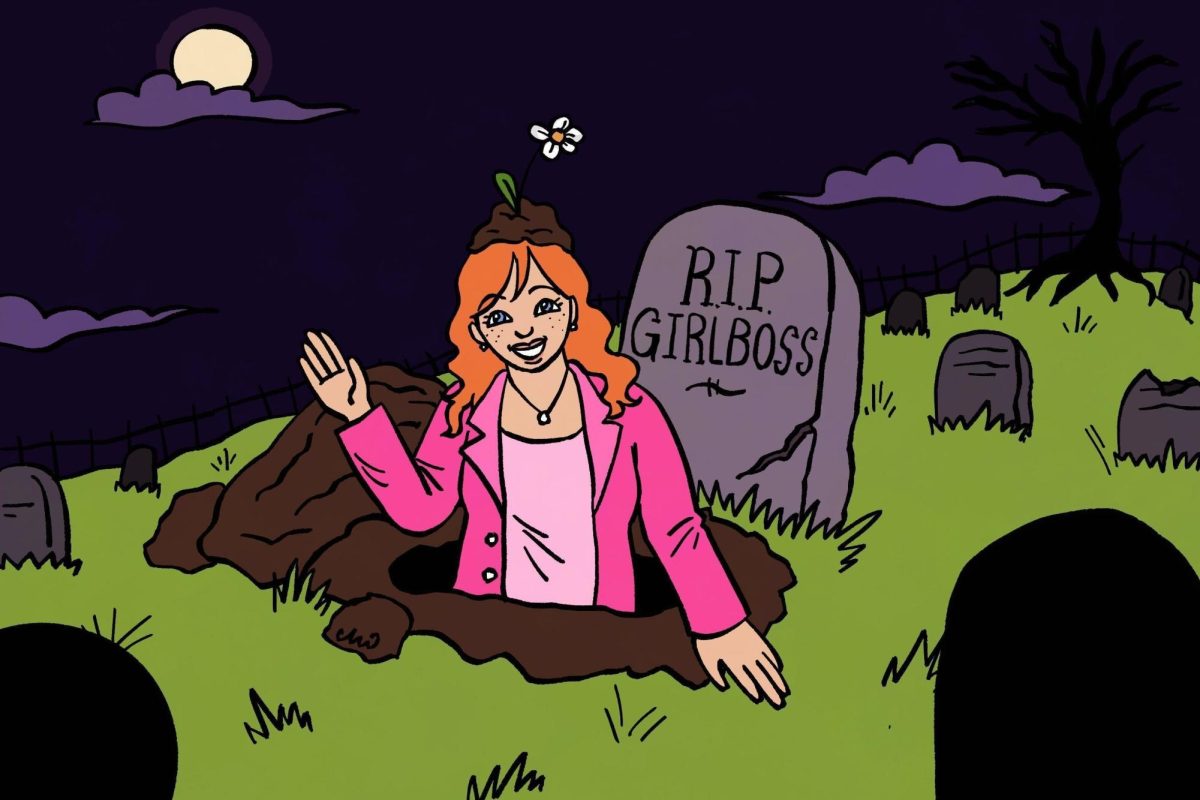Rating: 10/10
Spoilers ahead.
If you told me a year ago that a movie about a stripper fighting to marry a Russian oligarch’s son might be the movie of the year, I would’ve laughed in your face.
Fortunately, we aren’t living a year ago; we’re living in the day and age of “Anora,” the Palme d’Or-winning film from director Sean Baker, and you’ll regret not watching this masterpiece of indie cinema.
This is Baker’s most well-funded movie to date — only $6 million — and he uses that to his advantage. His previous movies, Tangerine, The Florida Project and Red Rocket, are modern American indie classics, but this film seems like it’s in its own category.
Anora, or “Ani,” for short — a star-making Mikey Madison — is a stripper in a Russian neighborhood in New York City. Every day she has her regular generic customers that she performs publicly and privately for at the strip club, until there’s a request for a Russian-speaking performer, which Ani fills the role of. She meets Vanya — played by Mark Eidlestein — a very wealthy young man looking to make acquaintance with her.
This film begins with an absolute bang. Incredible energy surrounds the characters as we see them move between clubs, mansion parties and bedrooms. Ani and Vanya are trying to figure out this transactional relationship, which leads them to believe they need to get a green card marriage in Vegas for Vanya to move away from his controlling parents in Russia.
Pacing is never an issue in Baker’s films, and this first part of the film is evidence of that. His editing showcases just how fleeting this relationship is, but they’re OK with that because they’re happy. Isn’t that what matters at the end of the day?
Not according to his controlling family members.
The middle section of this film is set off when Vanya’s family finds out he married a stripper and has apparently brought shame on his family back in Russia. This prompts Vanya’s mother to charge Toros — his godfather and Orthodox priest — Garnick and Igor, Toro’s henchmen with getting the marriage annulled.
Vanya runs away, leaving Ani with the three men as they search New York for him. They eventually succeed, and he annuls the marriage, telling Ani that he only wanted the green card — not her.
It’s a true rise and fall of emotions for Ani. She had everything, and then she went back to nothing. You really have to feel for her as she’s trying to stay ahold of this life that she wants.
In the final act, after the marriage is annulled, Igor helps Ani return to New York to help move her back into her apartment. They spend the night in the mansion together and weirdly bond over this experience.
The next day, Igor drops Ani at her apartment, and they say their goodbyes. Igor then gives Ani the wedding ring Vanya got for her, possibly setting her up for a bit of financial stability. Ani thanks him the only way she can: sex. But Igor pursues a kiss, which causes her to retaliate and punch him, only for her to subsequently break down emotionally and need to be comforted by him.
Ani realizes that she’s an incredibly broken human being. A kiss, something that is shown when you want to be affectionate with another person, is an action Ani can’t do.
Baker’s advocacy for sex workers feels like a shout into the void. The negative stigma against women in sex work is that they wanted this. While they might’ve wanted this life for themselves — unfortunately many don’t choose this life — they are enabled by men who prey and gaze upon them like a piece of meat. But the reality is that this line of work detaches you from basic human emotions; when Ani does try to show emotion, her instincts disallow her from expressing it.
Thematically, this ending isn’t supposed to work. The entire film leading up to this point has incredible energy and comedy that allows us to see how crazy this story and family are. Instead of allowing us to live in their world, like we’ve done for the past two acts, Baker turns the camera onto the audience and asks bluntly, “Is this OK? Is this inescapable life capitalism has bound people to justifiable?” It’s genius storytelling and a compelling call to action.
This messaging hits harder thanks to the actors in this film.
Mikey Madison is truly incredible and accomplishes one of the best performances I’ve seen this year. Her commitment to show the audience her character’s life of despair strengthens the weight of the story. Dancing on a pole is not as easy as people think! Her physicality embodies who this character is — gritty and a fighter.
The ensemble also is incredible. I really hope it wins the SAG Award for best cast. They each play their role and create this environment of chaos that fits not only this neighborhood in New York City, but also this incredibly toxic family.
And the technical department is superb. For the budget that they’re confined to, it feels like a $50 million movie. Keeping the setting naturalistic yet grand due to the wealthy influence of Vanya’s family allows for the scale of this film to succeed despite its financial confinement.
Listen, I’ve never encountered a stripper, nor do I have an interest in strippers or the strip club. I have no care for this world, but I left a changed man. Every moving part in this film makes you realize how broken this world is, and it makes the audience ponder on its place in it. Empathy is why we watch movies, and “Anora” achieves that to the highest standard.
Joshua Abraham is a kinesiology junior and opinion writer for The Battalion.
















